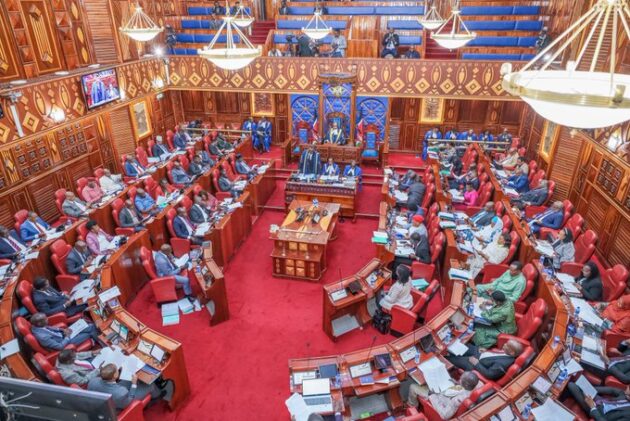
Senate to consider Ruto’s reservations on the Conflict of Interest Bill after National Assembly nod. » Capital News
NAIROBI, Kenya Jun 22 – The Senate is set to consider President William Ruto’s reservations regarding the Conflict of Interest Bill after it was approved by the National Assembly.
The Bill proposes a way for tougher regulations against unethical conduct in public service.
In a sitting of the House, lawmakers endorsed a raft of amendments tabled by the Leader of the Majority Party as part of President William Ruto’s recommendations, which significantly strengthen the Bill’s provisions and enhance the role of the Ethics and Anti-Corruption Commission (EACC) in enforcement.
“These changes are not cosmetic—they are systemic. They align the Bill with the President’s vision of a more accountable and transparent public service,” said Kimani Ichung’wah while moving the amendments.
Key among the adopted changes is a broader definition of “family” and “relative” to ensure that disclosures extend beyond immediate household members, thereby sealing common loopholes used to conceal conflicts.
According to information of the Parliament of Kenya website, the Bill offers an expanded definition of conflict of interest as it now includes situations where a public officer’s private interests may impair their objectivity or could reasonably be expected to do so in the future.
The EACC has been strengthened to “institute proceedings for forfeiture of undeclared or unexplained assets,” affirming the Commission’s central role in tracking illicit wealth.
Legislators further introduced mandatory disclosure obligations where a public officer becomes aware that a family member or relative has received gifts or complimentary treatment. These must be reported within 48 hours of knowledge or upon resuming duty, according to new subclauses added to Clauses 16 and 18. Failure to comply constitutes an offense.
In financial accountability, Clause 31 now defines a “material change” to include fluctuations in asset value by 25 percent or more, acquisition or disposal of property, and changes in marital status, directorships, or organizational memberships.
Clause 35 was also amended to ensure that declarations made under the Act are not only complete and correct but also subject to greater scrutiny.